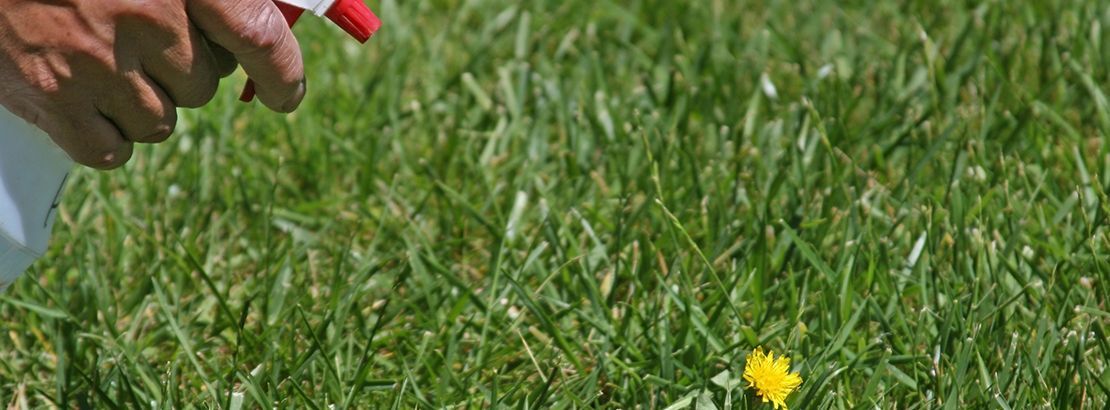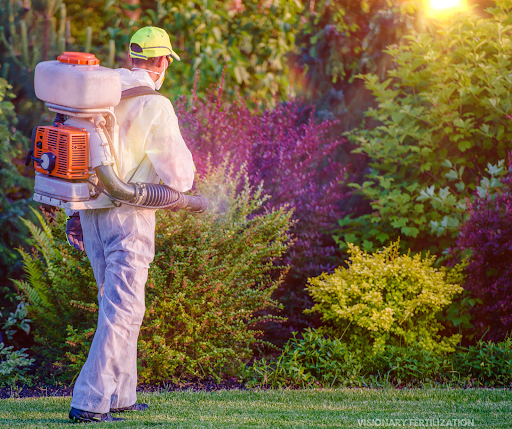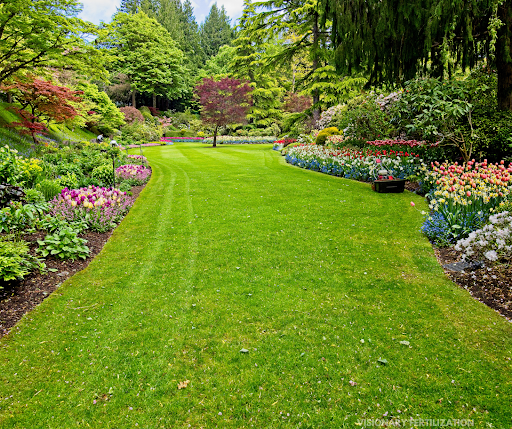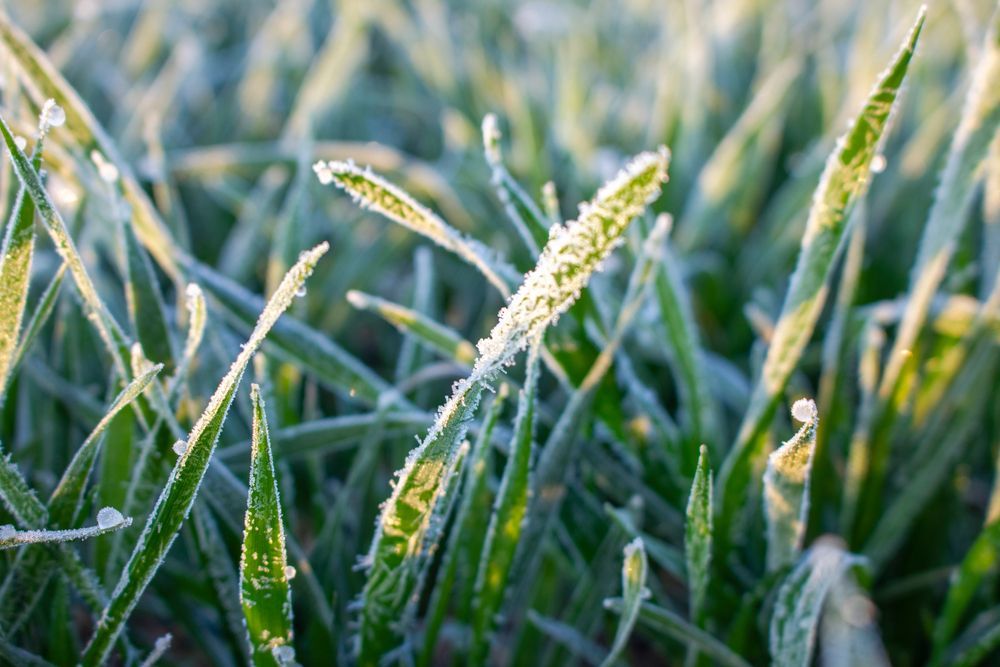VETERAN OWNED
November 17, 2023
Weed Control for your MI Lawns: Choosing the Right Approach
Maintaining a lush and healthy lawn in Michigan can be a challenging task, especially when it comes to dealing with persistent weeds. Weeds not only detract from the beauty of your lawn but also compete with your desired plants for nutrients, sunlight, and water. To tackle this issue, choosing the right weed control approach that suits your needs and aligns with your commitment to environmental sustainability is essential. This comprehensive guide will explore the pros and cons of chemical and organic weed control methods, providing you with the knowledge to make an informed decision for your Michigan lawns.
Chemical Weed Control: Pros and Cons
Chemical weed control, often using herbicides, has long been a popular approach for tackling weed infestations. However, it's important to consider both the benefits and drawbacks before implementing this method on your Michigan lawns.
Pros of Chemical Weed Control
- Effectiveness: Chemical weed killers are highly effective in eliminating weeds, providing quick results and preventing further spread.
- Labor-saving: Unlike manual removal methods, chemical weed control requires less physical labor, saving time and effort.
- Long-term control: Chemical herbicides can provide long-term weed control by preventing new weed growth in treated areas.
Cons of Chemical Weed Control
- Environmental impact: Chemical herbicides can negatively impact the environment, contaminating groundwater and potentially harming beneficial plants and organisms.
- Potential health risks: Using chemical weed killers may pose health risks to humans and pets if not used properly, requiring careful handling and protective measures.
- Selective efficacy: Some chemical herbicides may not discriminate between weeds and desirable plants, potentially damaging or killing unintended vegetation.
Organic Weed Control: Pros and Cons
Organic methods provide viable alternatives to chemical herbicides for those seeking a more environmentally friendly approach to weed control. Let's explore the benefits and considerations of organic weed control for your Michigan lawns.
Pros of Organic Weed Control
- Safety: Organic weed control methods are safer for humans, pets, and the environment, as they avoid using harmful chemicals.
- Environmental sustainability: By adopting organic weed control methods, you contribute to the preservation of ecosystems and protect the health of pollinators and other beneficial organisms.
- Peace of mind: Using organic weed control methods ensures that your produce, if any, is safe for consumption without the risk of chemical contamination.
Cons of Organic Weed Control
- Limited immediate efficacy: Organic weed control methods may take longer to show results and require repeated applications for effective weed suppression.
- Labor-intensive: Organic weed control often involves manual removal and other labor-intensive techniques, which can be challenging for larger lawns or individuals with limited mobility.
- Selective control limitations: Organic methods may not provide selective control, meaning they may not target specific weed species while sparing desired plants.
Preventing Weed Growth in Michigan Lawns
Prevention is key to minimizing weed growth and maintaining a healthy lawn. By implementing proactive strategies, you can create conditions that discourage weed proliferation. Consider the following prevention methods for your Michigan lawns:
1. Drip Irrigation
Drip irrigation is an efficient watering technique that can help prevent weed growth. By delivering water directly to specific plants rather than the entire landscape, you limit weed germination and reduce the competition for resources.
2. Turf Care
Maintaining a healthy and robust lawn through proper turf care practices helps suppress weed growth. Regular mowing, adequate fertilization, and appropriate watering techniques promote a dense lawn that naturally outcompetes weeds.
3. Mulching
Applying a layer of organic mulch, such as wood chips or straw, around plants and in garden beds can effectively block sunlight, preventing weed seeds from germinating. Mulching also helps retain soil moisture and regulate temperatures.
4. Foliage for Shade
Strategically planting foliage plants to create natural shade can inhibit weed growth. Selecting and positioning plants that provide shade creates an environment where weeds struggle to thrive due to limited sunlight.
Killing Existing Weeds in Michigan Lawns
If weeds have already invaded your Michigan lawns, it's crucial to take action promptly to prevent further spread. Here are effective methods for killing existing weeds:
1. Early Intervention
As soon as you notice weed growth, take immediate action to prevent the situation from worsening. Weeds reproduce through seeds, so removing them before they go to seed limits their ability to spread further.
2. Physical Removal
Cutting weeds down to soil level and removing their roots is an effective method for eliminating existing weeds. Ensure you dig deep enough to remove the entire root system, as this prevents regrowth and further weed infestation.
3. Chemical or Natural Weed Killers
Both chemical and natural weed killers can be used to effectively kill existing weeds. Chemical herbicides act quickly and cover larger areas, while natural alternatives, such as vinegar-based solutions, provide an environmentally friendly option. Consider your preferences and the specific weed species when choosing between these methods.
Natural Vs. Chemical Weed Killers: Choosing the Right Approach
The debate between natural and chemical weed killers often centers around their effectiveness and environmental impact. Here are some key considerations to help you make an informed decision:
Chemical Weed Killers: Pros and Cons
Pros of Chemical Weed Killers
- High effectiveness for weed control.
- Time and labor-saving.
- Long-term weed suppression.
Cons of Chemical Weed Killers
- Potential negative environmental impact.
- Health risks if not used and handled properly.
- Non-selective nature may harm desirable plants.
Natural Weed Killers: Pros and Cons

Pros of Natural Weed Killers
- Environmentally friendly and safer for humans and pets.
- DIY options using common household ingredients.
- Avoids chemical contamination of produce.
Cons of Natural Weed Killers
- May have limited efficacy against certain weed species.
- Labor-intensive and may require multiple applications.
- Weather-dependent and can be washed or blown away.
Choosing the right weed control approach for your Michigan lawns is crucial to maintaining a healthy and vibrant landscape. While chemical weed control methods offer quick results, they have potential environmental and health risks. On the other hand, organic weed control methods provide a safer and more sustainable alternative but may require more time and effort. You can ensure a weed-free lawn that thrives in harmony with nature by implementing preventative measures and effective weed-killing techniques. Remember to consider your specific needs, the type of weeds you're dealing with, and your commitment to environmental stewardship when selecting the weed control method for your Michigan lawns.
For more information on lawn care and weed control in Michigan, visit Visionary Fertilizer.


All Rights Reserved | Visionary Fertilization | Powered By Aletheia Digital


